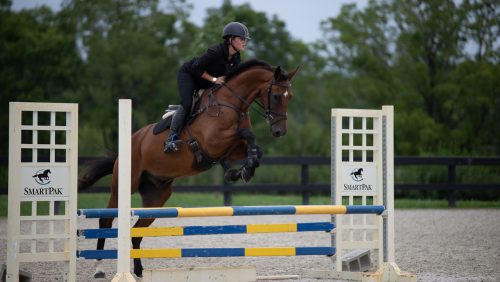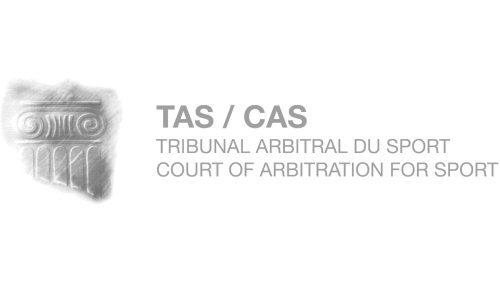With equestrian sport halted around the globe due to the growing COVID-19 pandemic, many equine brands have experienced a decline in demand as well as production. But a few are manufacturing more than ever in an effort to help relief efforts. Asmar Equestrian has pivoted from show ring apparel to medical uniforms, EquiFit is sewing masks instead of equine couture, and several other equestrian companies have shifted to help meet the massive demand for masks.
Noel Asmar Group, home of the Asmar Equestrian brand known for chic coats and riding wear, is donating uniforms to hospitals in British Columbia as well as the state of Washington. In addition to equestrian apparel, the Vancouver-based Noel Asmar Group has a division that specializes in spa and wellness uniforms, so they saw an opportunity to help the doctors and nurses on the front lines.

Asmar Equestrian plans to donate 1,000 uniforms to essential workers in need. Photo Courtesy Of Noel Asmar Group
“Our uniform tops have a zipper down the front,” said President and CEO Noel Asmar. “These are desirable right now because if workers are potentially exposed to COVID-19, it is safer to zip in and out of a tunic rather than pulling a top over their eyes, nose and mouth.” The company’s goal is to donate 1,000 uniforms, and deliveries are starting this week. Because their logistics partners have been deemed an emergency service, Noel Asmar Group’s manufacturing and warehousing is running at full force and will not close.
Additionally, Asmar Equestrian is launching a temporary relief program to assist coaches in the United States, Canada and abroad, many of whom have lost significant portions of their income due to COVID-19. Qualified coaches will receive a unique link to share with clients, friends and family. When those people make online purchases, their coach will receive a portion of the sales.
“It’s a crazy time right now for so many, and we just want to do as much as we can to help our equestrian community and the medical front line personnel,” said Asmar. “We hope we can come together to support one another during these times.”
ADVERTISEMENT
EquiFit Inc., based in Dedham, Massachusetts, acted quickly upon hearing of a need for masks, as the company shares a facility with a medical supply business. The mask pattern was designed in collaboration with Boston area medical professionals and consists of two outer layers of cotton and an inner layer containing AgSilver, an antimicrobial agent. “It happened so fast,” said EquiFit President and CEO Alexandra Cherubini. “Our engineers did the first design last Monday [March 23] and we started manufacturing last Thursday [March 26]. This week we’ve altered the design to enable us to produce even more masks more quickly.”
How many can EquiFit produce per day? “Not enough,” said Cherubini. “We can’t get them out the door fast enough.”
Masks are currently for sale on EquiFit’s website, and with each sale additional masks are donated to those in need.
“There is an option to buy one and donate five, and it’s really heartwarming to see the number of people who have chosen that option,” said Cherubini. Donated masks are provided to various groups including the Leslie S. T. Fang Foundation, a Boston non-profit currently distributing masks to medical personnel to keep them protected while they are outside of a hospital setting.

Health care providers in the dialysis unit at Massachusetts General Hospital in Boston sent the company this photo after receiving their EquiFit masks. Photo Courtesy Of EquiFit Inc.
Several European equestrian companies are similarly helping to make masks. Horse Pilot, based in northern France, is manufacturing masks to specifications developed by the Centre Hospitalier Universitaire de Grenoble. “We have received so many requests from our community,” said Horse Pilot co-founder Aurélien Guillon in an email. “At the moment we do not have enough, but we are using all our capacity to produce as much as we can.”
ADVERTISEMENT
All Horse Pilot masks are being donated to equestrians who work on the front lines. Horse Pilot is also sharing a portion of website sales with their store partners who are currently closed.
Saratoga Horseworks (New York) has also transitioned some of their manufacturing to produce plastic face shields.
“We were notified of a need for medical face shields, and by March 26 we had a design, prototypes and samples available for area hospitals to evaluate,” the company posted on their Facebook page. “Production started on March 27 and ramped up the week of March 30 to 1,000 shields per day. We will be producing over 20,000 shields and will continue to do so until the crisis is over and there is no longer such a dire need. During this time we have fielded calls from individual health care workers asking to purchase shields for themselves and their co- workers. Starting on April 6 we will be packing shields in cases of 10 and have set this dedicated web page up to make it easier to order shields any time of the day or night.”

Saratoga Horseworks plans to produce over 20,000 face shields. Photo Courtesy Of Saratoga Horseworks
Fabbri Boots is producing non-surgical masks for sale to the public near their headquarters in northern Italy. According to their Instagram page, part of the proceeds will be donated to local hospital Morgagni-Pierantoni.
As the demand for masks grows, more companies in the equestrian space are likely to answer the call. Equitex (California) and Iago (Italy) are currently working on mask prototypes.
On April 3, the U.S. Centers for Disease Control and Prevention released a recommendation that people wear a “cloth face covering” in public settings, especially in areas of high COVID-19 transmission rates and in places where it is difficult to maintain a safe social distance. The masks may help prevent transmission of the virus by asymptomatic carriers and people who are not yet showing symptoms. The CDC continues to emphasize social distancing and says that cloth masks are not an appropriate substitute for a surgical mask or N95 respirator.















